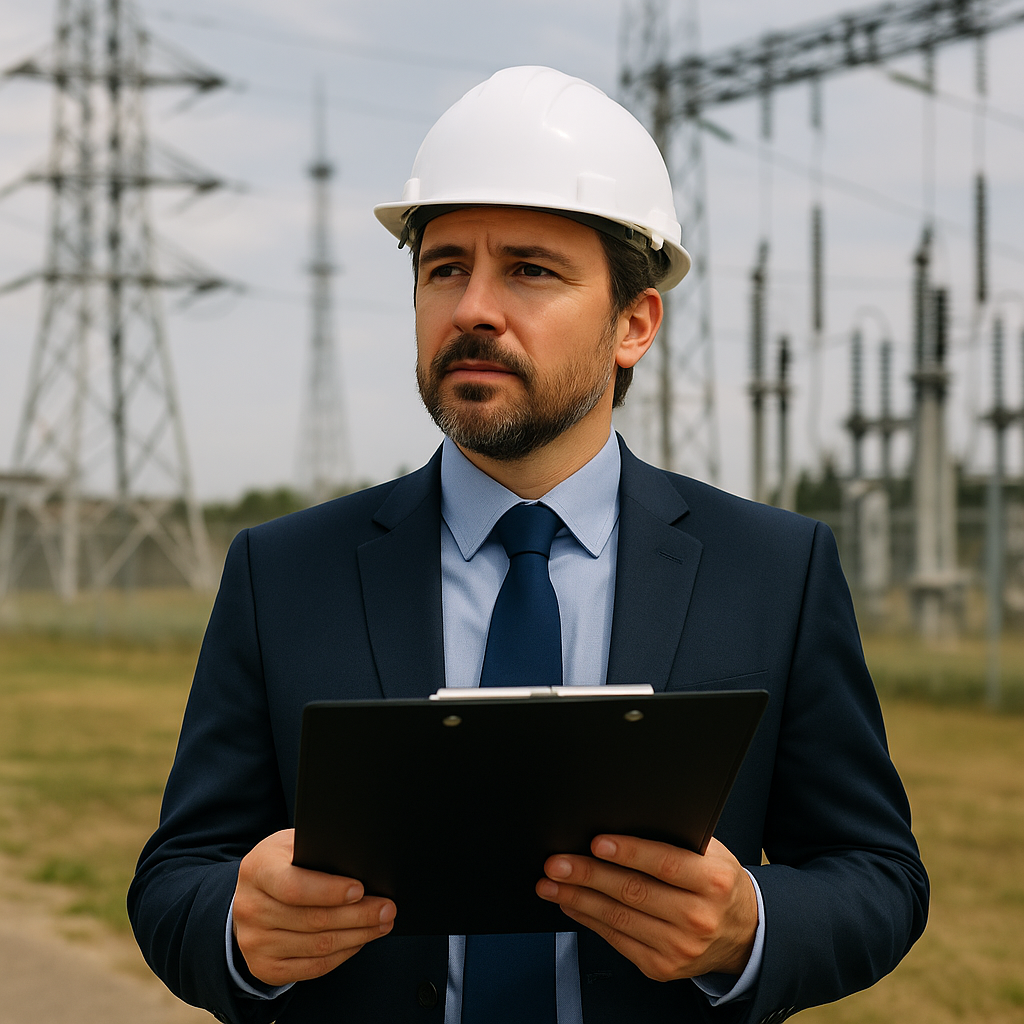The establishment of an electricity generation plant is a complex process that involves strict compliance with legal, technical, and environmental regulations. In Turkey, energy generation is regulated by the Energy Market Regulatory Authority (EPDK) and governed by various laws and secondary legislation. Investors planning to build power plants—whether renewable (solar, wind, hydro) or non-renewable (natural gas, coal)—must follow a multi-stage legal process that includes licensing, permits, and compliance with safety and environmental standards. This article provides a comprehensive guide to the legal process for establishing an electricity generation plant, including licensing requirements, environmental approvals, construction permits, and post-construction obligations.
1. Legal Framework
The main laws governing the establishment of electricity generation plants in Turkey include:
- Electricity Market Law No. 6446 – Regulates licensing, tariffs, and market operations.
- Renewable Energy Law No. 5346 – Encourages renewable energy investments with incentives.
- Environmental Law No. 2872 – Sets environmental requirements and mandates Environmental Impact Assessments (EIA).
- Zoning Law No. 3194 – Governs land-use planning and building permits.
- Occupational Health and Safety Law No. 6331 – Imposes workplace safety obligations.
- Energy Efficiency Law No. 5627 – Requires efficiency measures in power plant operations.
2. Preliminary Steps Before Establishment
2.1. Feasibility Study
- Conducting technical, financial, and legal feasibility studies is essential before starting the licensing process.
- These studies assess the plant’s capacity, location, fuel source, and expected output.
2.2. Land Selection
- Investors must ensure that the land is zoned for energy generation.
- If the land is agricultural, forestry, or otherwise restricted, zoning amendments or permits from the Ministry of Agriculture or Forestry may be necessary.
2.3. Energy Resource Analysis
- For renewable projects, a resource measurement report (e.g., wind or solar resource data) must be prepared and submitted to EPDK for evaluation.
3. EPDK Generation License
The electricity generation license issued by EPDK is a critical requirement for any power plant exceeding 1 MW capacity.
Key aspects of the license include:
- License Term: Typically 10–49 years, depending on the project type.
- Scope: Allows construction, generation, and sale of electricity.
- Conditions: Compliance with technical, financial, and environmental standards.
4. Licensing Process
4.1. Application Documents
To apply for a generation license, companies must submit:
- A license application form and corporate documents (articles of association, trade registry).
- A financial capability report demonstrating sufficient capital.
- A project description file detailing plant capacity, technology, and fuel type.
- A land ownership or lease agreement.
- Grid connection approval from TEİAŞ (Turkish Electricity Transmission Corporation) or the local distribution company.
- Environmental permits, including EIA report or EIA exemption certificate.
4.2. Evaluation by EPDK
- EPDK evaluates the financial stability, technical capacity, and compliance of the applicant.
- If approved, the investor is granted a generation license and must start construction within the specified period.
5. Environmental Impact Assessment (EIA)
5.1. When Is EIA Required?
- Thermal power plants over 50 MW, large hydropower plants, and significant renewable projects require a full EIA report.
- Smaller projects may undergo EIA screening (Annex-2 projects).
5.2. EIA Process
- Submit a project description file to the Ministry of Environment.
- Conduct public participation meetings.
- Prepare a detailed EIA report with environmental mitigation plans.
- Obtain an “EIA Positive” decision or “EIA Not Required” certificate.
6. Municipal and Construction Permits
Before starting construction, the following permits must be obtained:
- Zoning Plan Approval: Confirms that the land use is designated for energy projects.
- Construction Permit : Issued by the local municipality.
- Occupancy Permit: Required after construction completion.
- Fire Safety and Infrastructure Approvals: Ensuring the facility meets safety and emergency standards.
7. Grid Connection and TEİAŞ Approvals
A power plant cannot operate without connecting to the national grid:
- TEİAŞ or the local distribution company must approve grid connection capacity.
- A connection agreement and system usage agreement must be signed.
- For renewable projects, YEKDEM (Renewable Energy Resources Support Mechanism) registration may be required.
8. Construction Phase
During construction:
- The investor must comply with EPDK’s reporting obligations regarding progress.
- Health and safety standards under Law No. 6331 must be observed.
- Quality control and technical inspections should be conducted regularly.
9. Post-Construction Requirements
9.1. Commissioning Tests
- The plant must undergo acceptance and commissioning tests supervised by authorized institutions.
9.2. Operation License and Reporting
- After commissioning, the investor must ensure compliance with market operations regulations and submit periodic reports to EPDK.
10. Legal Risks and Common Challenges
10.1. Failure to Complete Construction
- If the project is not completed within the timeframe stated in the license, EPDK may suspend or revoke the license.
10.2. Environmental Violations
- Non-compliance with EIA obligations may result in fines, legal action, and suspension of operations.
10.3. Land Disputes
- Zoning conflicts or land acquisition issues can cause significant delays.
10.4. Technical Non-Compliance
- Failure to meet grid standards or safety codes can prevent the plant from being commissioned.
11. Role of Legal Counsel
An energy law attorney is vital for:
- Preparing license applications and ensuring compliance with EPDK requirements.
- Handling land acquisition and zoning amendments.
- Managing environmental and construction permits.
- Representing the investor in disputes with EPDK or local authorities.
12. Timeline for Establishing a Power Plant
- Feasibility and land acquisition: 3–6 months.
- EPDK licensing and EIA process: 6–12 months.
- Construction: 12–24 months (depending on plant type).
- Commissioning and grid connection: 1–3 months.
In total, the process may take 2–3 years for large-scale projects.
13. Conclusion
Establishing an electricity generation plant requires comprehensive legal and technical planning.
- EPDK licensing, environmental approvals, and municipal permits are mandatory steps that must be managed carefully.
- Early coordination with legal experts, technical consultants, and public authorities can significantly reduce delays and risks.
Key Takeaways:
- EPDK license and EIA approval are the backbone of the legal process.
- Zoning and grid connection approvals must be obtained early.
- Investors should anticipate 2–3 years of preparation and construction.

Yanıt yok